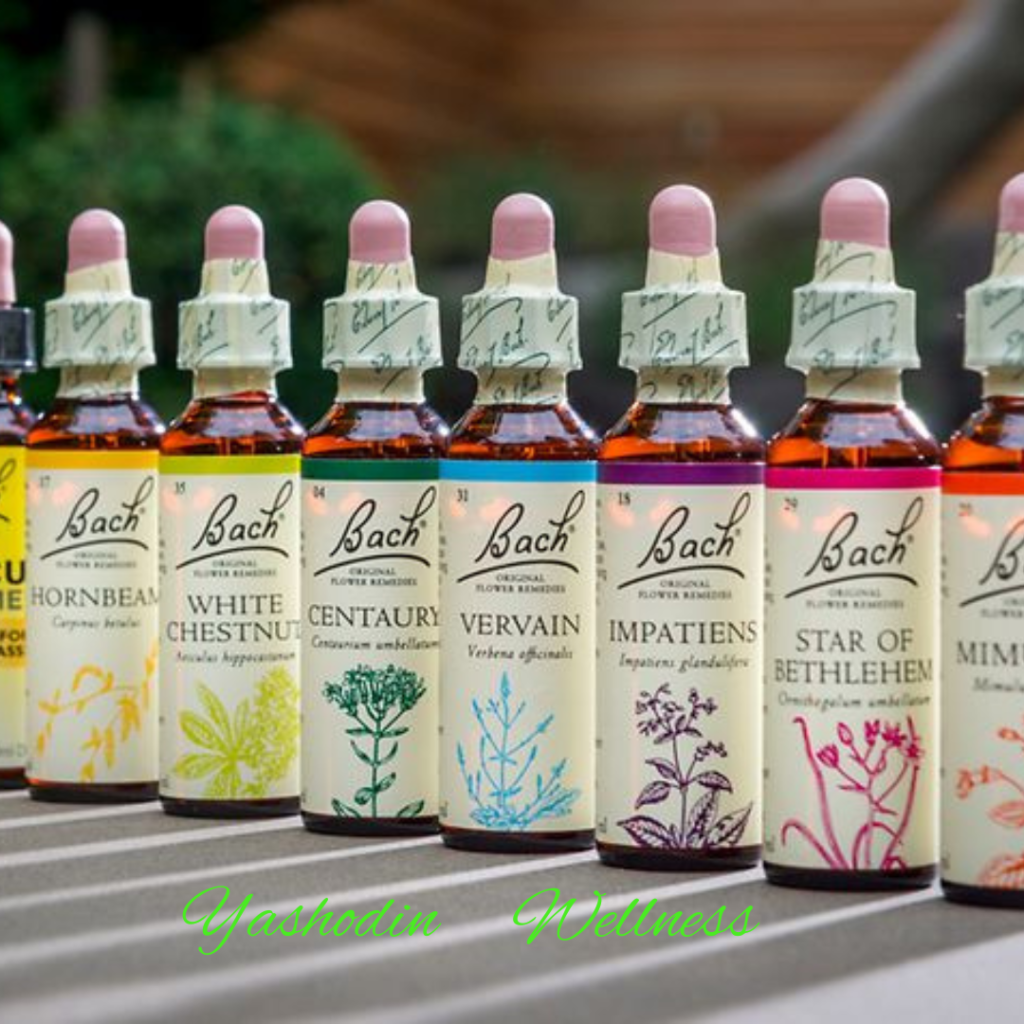Bach flower Therapy

Bach flower therapy is a form of alternative medicine that uses flower essences to address emotional and psychological issues. Developed by Dr. Edward Bach, a British physician and homeopath, in the 1930s, this therapy is based on the idea that the energy of flowers can help balance negative emotions and promote mental well-being. Here’s a detailed overview:
Principles of Bach Flower Therapy
- Emotional Healing: Dr. Bach believed that emotional and psychological issues are the root cause of many physical illnesses. By addressing these negative emotions, overall health can be improved.
- Individualized Approach: Bach flower remedies are tailored to the individual’s specific emotional state rather than a particular physical ailment.
- Gentle and Natural: The remedies are made from wildflowers and are considered safe and gentle, with no known side effects.
The 38 Bach Flower Remedies
Dr. Bach identified 38 different flower essences, each corresponding to a specific emotional state. They are categorized into seven emotional groups:
- Fear:
- Rock Rose: For terror and fright.
- Mimulus: For known fears.
- Cherry Plum: For fear of losing control.
- Aspen: For unknown fears and anxiety.
- Red Chestnut: For fear for the welfare of others.
- Uncertainty:
- Cerato: For lack of trust in one’s decisions.
- Scleranthus: For indecisiveness.
- Gentian: For discouragement and doubt.
- Gorse: For hopelessness and despair.
- Hornbeam: For mental fatigue and procrastination.
- Wild Oat: For uncertainty about one’s path in life.
- Insufficient Interest in Present Circumstances:
- Clematis: For dreaminess and lack of focus.
- Honeysuckle: For dwelling on the past.
- Wild Rose: For apathy and resignation.
- Olive: For exhaustion and fatigue.
- White Chestnut: For unwanted thoughts and mental chatter.
- Mustard: For sudden gloom and depression without a known cause.
- Chestnut Bud: For failing to learn from past mistakes.
- Loneliness:
- Water Violet: For pride and aloofness.
- Impatiens: For impatience and irritability.
- Heather: For self-centeredness and neediness.
- Oversensitivity to Influences and Ideas:
- Agrimony: For inner torment hidden behind a cheerful facade.
- Centaury: For the inability to say no and being easily influenced.
- Walnut: For protection against change and outside influences.
- Holly: For negative feelings such as jealousy, hatred, and envy.
- Despondency or Despair:
- Larch: For lack of confidence.
- Pine: For guilt and self-blame.
- Elm: For feeling overwhelmed by responsibility.
- Sweet Chestnut: For extreme mental anguish.
- Star of Bethlehem: For shock and trauma.
- Willow: For bitterness and resentment.
- Oak: For overworking and ignoring the need to rest.
- Crab Apple: For self-disgust and poor self-image.
- Overcare for the Welfare of Others:
- Chicory: For selfish, possessive love.
- Vervain: For over-enthusiasm.
- Vine: For dominance and inflexibility.
- Beech: For intolerance.
- Rock Water: For self-denial and rigidity.
Benefits of Bach Flower Therapy
- Emotional Balance: Helps in managing and balancing emotions such as fear, anger, sadness, and anxiety.
- Stress Reduction: Promotes relaxation and reduces stress levels.
- Enhanced Well-being: Supports overall mental and emotional well-being.
- Safe and Natural: Suitable for all ages and considered safe with no known side effects.
- Holistic Approach: Complements other forms of treatment and can be used alongside conventional medicine.
Scientific Evidence
- Limited Clinical Research: There is limited scientific evidence supporting the efficacy of Bach flower remedies. Most studies have shown results comparable to placebo.
- Anecdotal Evidence: Many users and practitioners report positive effects and improvements in emotional health, although these are largely anecdotal.
Usage and Administration
- Personalized Remedies: Remedies are often chosen based on an individual’s specific emotional needs, either through self-assessment or consultation with a trained practitioner.
- Method of Use: The remedies are typically taken orally, either directly from the dropper or diluted in water. They can also be added to baths or applied to pulse points.
Conclusion
Bach flower therapy offers a gentle and natural approach to addressing emotional and psychological issues. While scientific evidence is limited, many people find relief and improved well-being through the use of these remedies. As with any alternative therapy, it’s important to consult with a healthcare provider, especially if you have underlying health conditions or are taking other medications.
Yashodin Wellness Solutions gives service of Bach flower therapy for many health problems.
